/https://en.wikipedia.org/wiki/Var_(department)
---------------------------------------------
Translation Google
First indigenous case of chikungunya in 2025 in mainland France, in the Var
Marseille (AFP) – The first indigenous case of chikungunya in 2025 in mainland France was detected on Wednesday in the Var region, in the commune of La Crau, the Provence-Alpes-Côte d'Azur Regional Health Agency announced in a press release on Friday.
Published on:06/13/2025 - 1:37 PM
Modified on:06/13/2025 - 1:34 PM
Only one indigenous case of this virus transmitted by the tiger mosquito had been detected in 2024 in mainland France, in Ile-de-France, and none in 2023. Since 2010, mainland France had experienced around thirty indigenous cases of this virus.
Until now, since the beginning of the year, all cases of chikungunya recorded in mainland France came from contamination outside the territory, mainly in Réunion, this French island in the Indian Ocean which has been hit for several months by an epidemic of this virus unprecedented in twenty years.
"Immediate measures are being implemented to limit any risk of spread," assured the ARS Paca, mentioning in particular mosquito control carried out in the commune, "on public roads and in private gardens located around the case," in order to eliminate larval breeding sites and adult mosquitoes as quickly as possible.
Similarly, a door-to-door survey will be conducted in homes in the affected area to identify people who may be showing symptoms.
We speak of an indigenous case when a person contracted the disease on national territory and did not travel to a contaminated area in the 15 days preceding the onset of symptoms.
This year, the chikungunya epidemic, a disease that causes fever and joint pain, has hit Reunion Island the hardest, with 23 deaths, although it is now continuing to decline. An estimated 200,000 people have been infected on the island since January.
While the epidemic is clearly declining in Réunion, it is still gaining momentum in Mayotte, also in the Indian Ocean, where it broke out later. According to the latest report, 746 cases have been reported since the beginning of the year, but this figure likely appears to be an underestimate.
The warmer temperatures currently affecting France are increasing the activity of tiger mosquitoes, vectors of this virus as well as those of dengue and Zika.
In 2024, there were also 83 indigenous cases of dengue fever in mainland France, between the Provence-Alpes-Côte d'Azur, Occitanie and Auvergne-Rhône-Alpes regions.
Having appeared in mainland France in 2004, the tiger mosquito is in any case continuing its rapid expansion across the country, particularly towards the north: at the start of 2025 it was present in 81 departments, or 84% of mainland departments, according to new data released in mid-May by Public Health France.
Dengue fever and chikungunya could become endemic in Europe due to global warming, urbanization, and travel, all factors that promote the spread of the tiger mosquito, according to a study published in the journal Lancet Planetary Health in mid-May.
Faced with this progression, and in an attempt to halt it, several thousand male tiger mosquitoes rendered sterile by X-rays were released in mid-May in Brive-la-Gaillarde (Corrèze), as part of an experiment of unprecedented scale in mainland France.
With this sterile insect technique (SIT), used for decades in the agricultural sector, the offspring of females, the only ones responsible for the bites, would gradually be neutralized and the populations should automatically decrease.
https://www.france24.com/fr/info-en-...le-dans-le-var
----------------------------------------------------------
Var: first case of chikungunya detected in La Crau
Press release
June 13, 2025

The first indigenous case of chikungunya was detected this Wednesday, June 11, 2025, in the commune of La Crau (Var).
This is the first confirmed case in metropolitan France this year. Immediate measures are being implemented to limit any risk of spread.
We speak of an indigenous case when a person contracted the disease on national territory and did not travel to a contaminated area in the 15 days preceding the onset of symptoms.
As a reminder, chikungunya is transmitted from person to person through the bite of a mosquito (tiger mosquito present in mainland France) infected with the chikungunya virus.
Field actions to stop the spread of the virus
To prevent the spread of the disease, mosquito control is being carried out in the municipality by the Interdepartmental Agreement for the Control of Mosquitoes on the Mediterranean Coast (EID-Med), on public roads and in private gardens located around the case. The goal is to quickly eliminate breeding sites and adult mosquitoes, which can transmit the virus.
This mosquito control action will be supplemented by a door-to-door survey carried out by the ARS Paca and Public Health France in homes in the affected area in order to identify people who may be showing symptoms, inform them on what to do and disseminate prevention messages.
Finally, hospitals, private doctors and medical analysis laboratories in the area are also mobilized to care for, screen and remind people who may present symptoms of chikungunya of preventive measures.
Everyone, by changing their behavior, can protect themselves and their loved ones.
1. Protect yourself from mosquito bites
It is advisable to:
- use a skin repellent, especially in the morning and at the end of the day
- wear loose, covering clothing;
- use air conditioners or fans which bother mosquitoes;
- use mosquito nets for newborns or bedridden people
3. Avoid the proliferation of mosquitoes
Eliminate stagnant water in which mosquitoes develop, by following simple and effective actions to be carried out once a week:
✓ empty plant pots and anything that retains small quantities of water (garden furniture, tarpaulins, etc.);
✓ store anything that may contain water (children's toys, buckets, watering cans) away from the rain;
✓ close water reserves (barrels, cans) tightly or cover them with a mosquito net;
✓ ensure that gutters drain properly;
✓ maintain green spaces that can become resting places for adult mosquitoes.

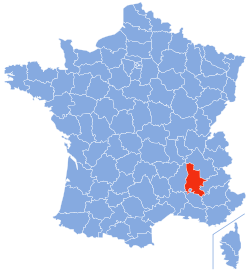
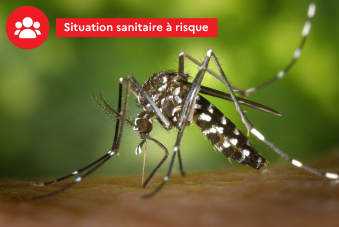
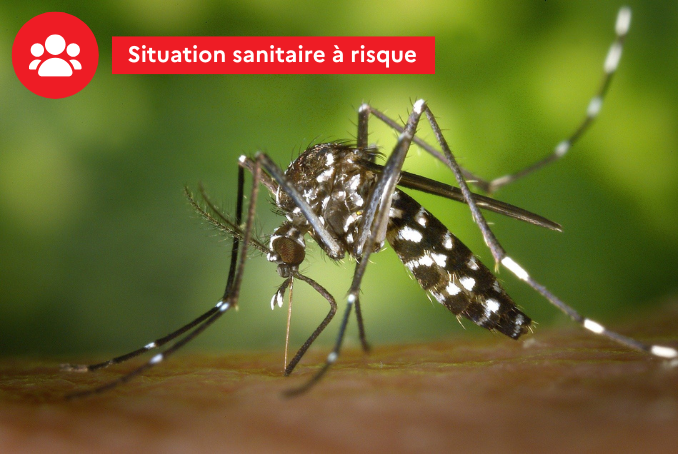


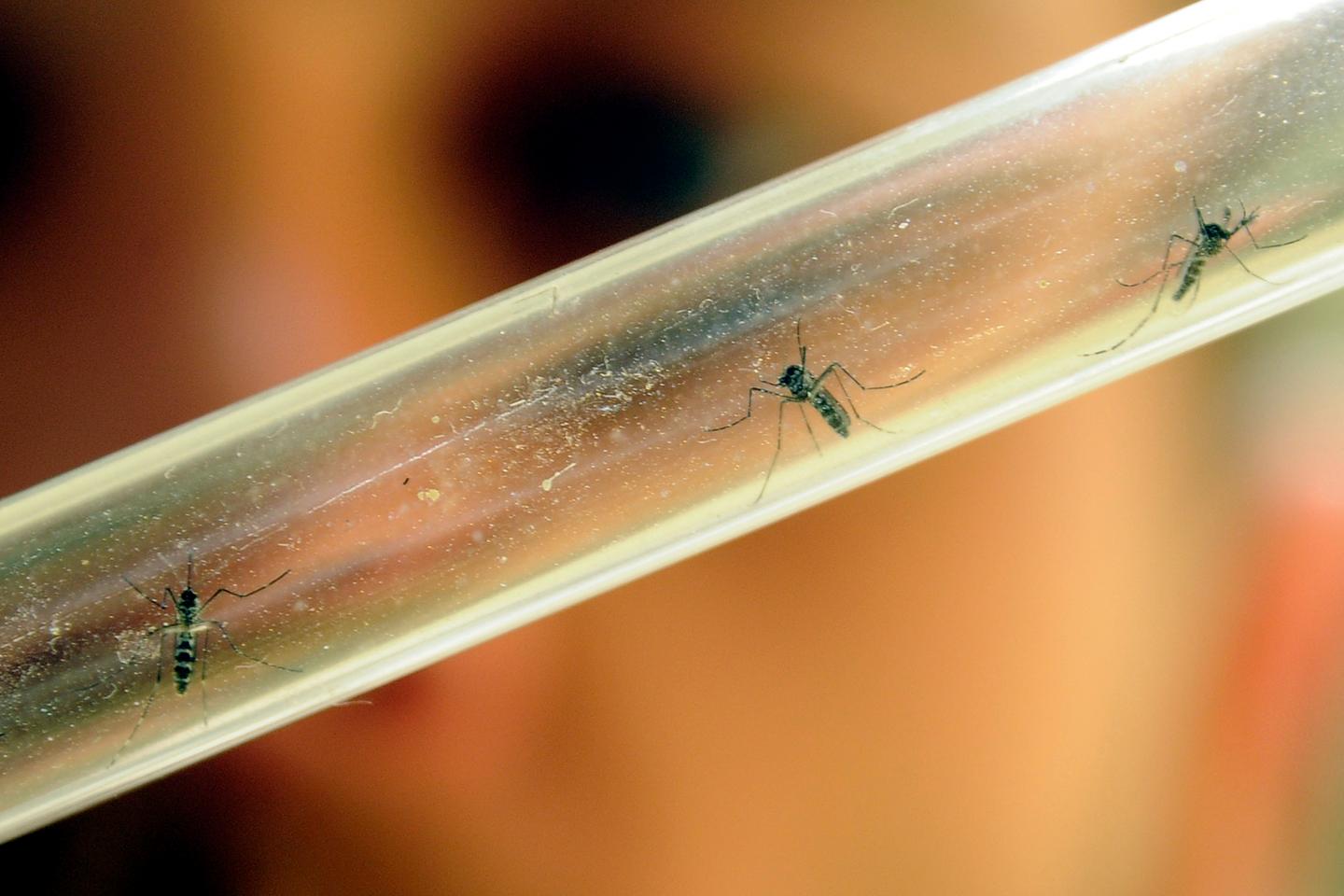







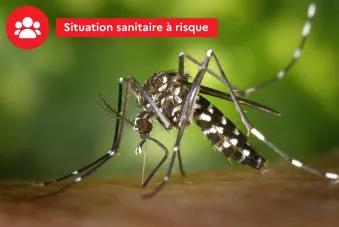

Comment